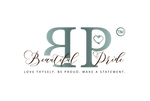Read More: How We Can End Stigmas With Words
A Message From The Owner!
How Can Use Humanizing Language to End Stigmas?
Words can inspire. And words can destroy. Choose yours well.”
– Robin Sharma
"Sticks and stones my break my bones but words will never hurt"! Oh boy, if that isn't the biggest lie and myth ever told and believed. WORDS MATTER AND THEY DO HURT! Just as words can be used to cause harm and stigmatize, they can also be used to heal and bring inclusiveness to our world. Therefore, instead of using words that hurt and cause harm when speaking about people with mental, physical, intellectual and developmental disabilities, living with substance use disorders or are in recovery and those who are justice-involved (social disability, see definition below), these collections are to empower and inspire you to replace the usage of words that cause harm with those that heal and humanize! Words are indeed powerful so let's use them to end stigmas.
The Words Matter Collections are as follows:
- Substance Use Disorders & Recovery
- Disabilities: Mental, Physical, Intellectual, Developmental and Social
- Criminal Justice- I Am Not Your Convict
(In each sub collection’s description, the supported organizations who will benefit from the proceeds in that collection will be listed along with hyperlink to their website.)
These collections specifically support the humanizing of language for humans living with criminal convictions, disabilities (mental, physical, intellectual, developmental or "social"), mental illness, substance use disorders or are in recovery. This is NOT about being "politically correct" but is an effort to raise consciousness, is an invitation for you to hear and experience the world through someone else’s reality and to support those asking that society no longer contribute to the offensive and ableist language that is harmful and offensive and used to cause harm and stigmatize.
How do we do this? By focusing on removing words that define a person by their condition and their circumstances and that have negative meanings by replacing it with humanizing language that separates the person from his or her disorder, illness, social condition or their past. Person-centered language is language that puts people first. People are so much more than their substance use disorder, mental illness, disability or their criminal record.
Language shapes how we see the world. The words we choose and the meanings we attach to them influence our feelings, attitudes and beliefs. Our language choices have a powerful effect on how we view mental health, disabilities and other differences of those we share this world with. The words we use to talk about issues and refer to the people impacted by them not only alienates people living with disabilities, mental illness, substance use disorders or living with a criminal record, but they sensationalize the issue and contribute to stigma and discrimination.
We can end stigmas by using person-first or person-centered language, which focuses on the person—not their illness, disorder, disability, social disability, social condition or their past.
These collections feature BOLD statements to educate society on appropriate language that humanizes us as individuals in an effort to eradicate the use of language that causes harm . This collection features pieces that express and support the growing movement that people with substance use disorders, criminal convictions and mental, physical and intellectual disabilities are PEOPLE first and should be referred to as such as opposed to derogatory and stigmatizing language that we have accustomed ourselves to using. These collections will allow you to support this movement by educating those who will undoubtedly read what you are wearing and hopefully spark a conversation.
What is a "social" disability? It is a term I personally use to define an act of being "disabled" by society as a direct result of a person being impacted by a social condition (i.e. formerly incarcerated, unsheltered, LGBTQIA+, non English speaking immigrant, being on the sex offender registry, HIV+/AIDS) that results in them being denied equitable access to resources or quality of life, treated unfairly or discriminated against due to social stigmas perpetuated by religious beliefs, fear, biases, oppression, discrimination, racism, bigotry and ignorance because of one's ethnicity, race, immigration status or their social or health status; thereby "disabling" them.
Thank your for supporting Beautiful Pride!
Waleisah, Owner

Organizations YOU are Currently Supporting With Your Purchases
Take a peek at the organization that you help us support with proceeds from your purchases (as of 2/1/22).
